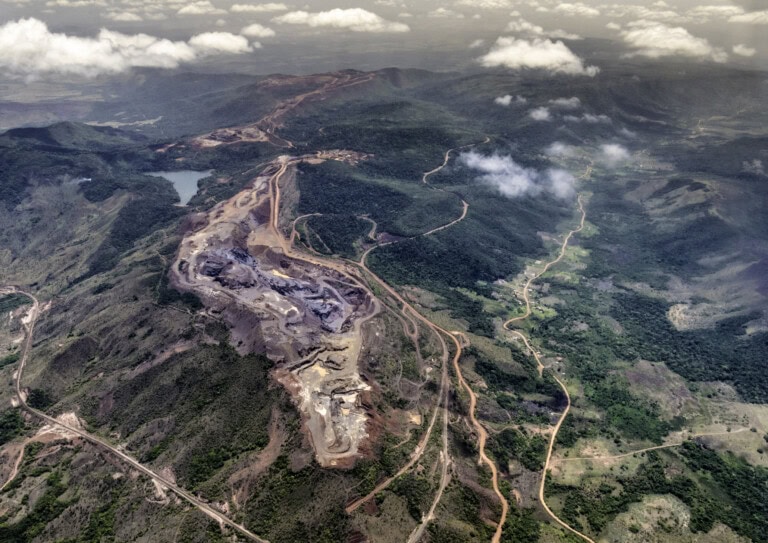Knowing ourselves is the first step to creating change

How long have you been working? Ten years? Twenty? Thirty? Are things getting a bit stale?
I’ve been more or less gainfully employed for 28 years now, most recently as head of comms and policy at the sustainability charity and social enterprise Bioregional, which strives to make a better built environment. My colleagues are some of the most dedicated, inspiring and fun people I’ve ever worked with, with an unwavering vision of One Planet Living.
But after spending nearly three decades of my adult life in organisations that are trying in various ways to create positive change in the world, with mixed results, I decided my own mission needed a reboot.
So in March I prised myself away from my emails, deadlines and meetings for a few days to do just this. I joined the UKGBC’s Change Accelerator programme, designed for “experienced business leaders… to lead transformational change in their businesses, and ultimately to work together to facilitate a systemic shift in the sustainability of the built environment.”
I won’t dive deep into the course content, but I will try to summarise what has stuck most in my head now I’ve completed the programme:
- Let go of your inner saboteur. Most of us tell ourselves unhelpful stories about our capacity to create change. Mine is that I’m not actually qualified to do the job I’m doing and sooner or later someone will tap on the shoulder and escort me kindly but firmly out of the office. But I’ve learned to recognise and accept my negative thoughts and know that with practice, they do change, and can be replaced by far more helpful ones.
- Develop a sense of purpose. Maybe you already have one. Or perhaps, like me, you had a vague instinct about what’s important to you, but never sat down and thought about it properly. What do you cherish most? What breaks your heart? What legacy do you want to leave? Asking yourself searching questions like this will help re-awaken a sense of direction and unlock renewed drive.
- Use storytelling to target emotions. As important as facts and data are, emotions are the clinchers when it comes to changing minds or behaviour. If you’re not convinced by this, I invite you to recall how the Brexit vote was won. Make sure your message reaches people’s hearts as well as heads, but do so responsibly – channel Obama, not Trump. On this, Jonah Sachs’ The Story Wars and Simon Sinek’s Start With Why are essential reading.
- Get out of the office. Change rarely starts in a meeting room with an agenda and someone taking minutes. So take a colleague for a walk to share an idea with them. Have a random coffee with someone who inspires you. Go to the pub for a brainstorm. If you can’t leave the office, even just having stand-up meetings will give your neural pathways a blast of fresh air.
- Allow yourself to be vulnerable. Bear with me, I know this sounds a bit touchy-feely. For me this means letting myself off from needing to have all the answers, to be perfect, or to be right all the time. Admitting you’re stuck, or need help – as well as offering to help others –builds trust, creativity and teamwork. Watch Brené Brown’s Ted Talk to find out more about vulnerability.
So much of what we covered in the course was about knowing who we are, accepting ourselves and building on our strengths – pretty deep stuff for a bunch of construction industry professionals. One of my fellow trainees told me that it had been very emotional for him – he’d just never had any training like this before in all his years of employment.
It perplexes me that as we progress through our working lives, most of us are somehow supposed to be able to instinctively practice these so-called ‘soft skills’, without ever having been taught them. And speaking for myself, improving them is a lifetime’s challenge. The Change Accelerator course is a great place to start.
So here I am, back in my desk on a Monday morning, reflecting on my new-found purpose, and the brilliant team that Bioregional has assembled to help create a better world. It’s a big challenge for a small charity to help lever the systemic change that’s needed for the UK built environment to transform itself. But we won’t change the world unless we have big dreams.
Applications for our Change Accelerator 2019 cohort are now open! Find out more and apply here.
Make sure to follow the UK Green Building Council on Twitter, LinkedIn, and Facebook.
Related
Navigating the challenges around hard-to-recycle materials

What are the environmental impacts of construction materials? An introduction to Embodied Ecological Impacts

Why is social value so crucial when developing and managing commercial real estate?

Biodiversity Net Gain: Are you ready for the incoming legislation?

